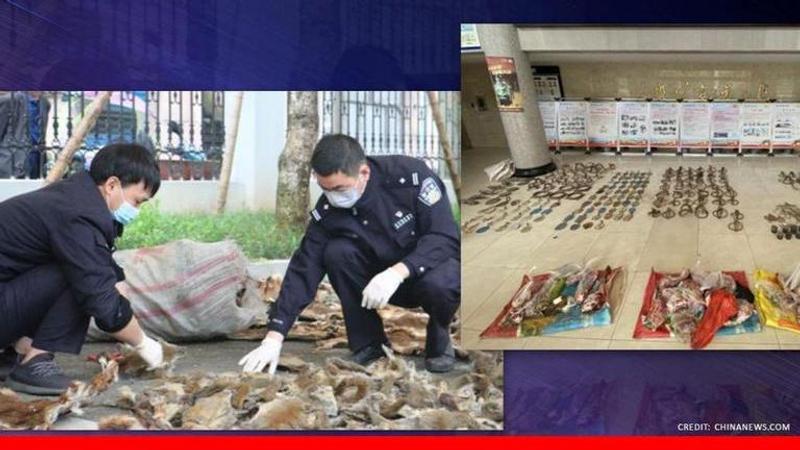Published 20:14 IST, June 4th 2020
China: Police bust wildlife trade racket amid ban on consumption over COVID-19 fears
According to the Global Times, the police in Eastern China recently busted a racket of poachers and seized a huge tranche of animal fur and wildlife meat.

The coronavirus outbreak wreaking havoc across the world has forced China to act against rampant illegal wildlife trade and the Chinese police in Hangzhou recently busted one such case. According to Chinanews.com, the police in Eastern China busted a racket of poachers and seized a huge tranche of animal fur and wildlife meat.
The police reportedly recovered at least 14 wildlife animals, 4,894 pieces of animal fur, and over 50 kg of frozen wildlife meat. China’s national English daily also reported that 11 suspects in the illegal wildlife trade case have been arrested.
Last month, Wuhan authorities announced a ban on the consumption of wildlife animals and said that farmers were being offered a government buy-out to facilitate the transition. The local administration of Wuhan, the first epicentre of the coronavirus outbreak, reportedly said that wildlife hunting will be banned except for research purpose, population control, and disease monitoring, adding that the city will become a “wildlife sanctuary”.
Origin of coronavirus
The origin of SARS-CoV-2 is not known but preliminary studies suggested that the bats could be the source since the coronavirus present in bats has a genome that is 96 per cent identical to the novel coronavirus. It is believed that the wildlife market in Wuhan caused the virus to transmit through another host because the bat coronavirus cannot bind to receptors in human cells, however, there has not been any concrete evidence.
According to the plan published on May 15, Hunan and Jiangxi provinces have provided an exit strategy for wildlife farmers who will be compensated, allowing them to opt for alternative livelihoods such as growing fruit, vegetables, tea plants, or herbs for traditional Chinese medicine. Dr Peter Li, Humane Society International’s China policy specialist, said in a statement that these provinces are demonstrating global leadership by subsidising wildlife breeders to transition to alternative livelihoods.
Updated 20:14 IST, June 4th 2020




